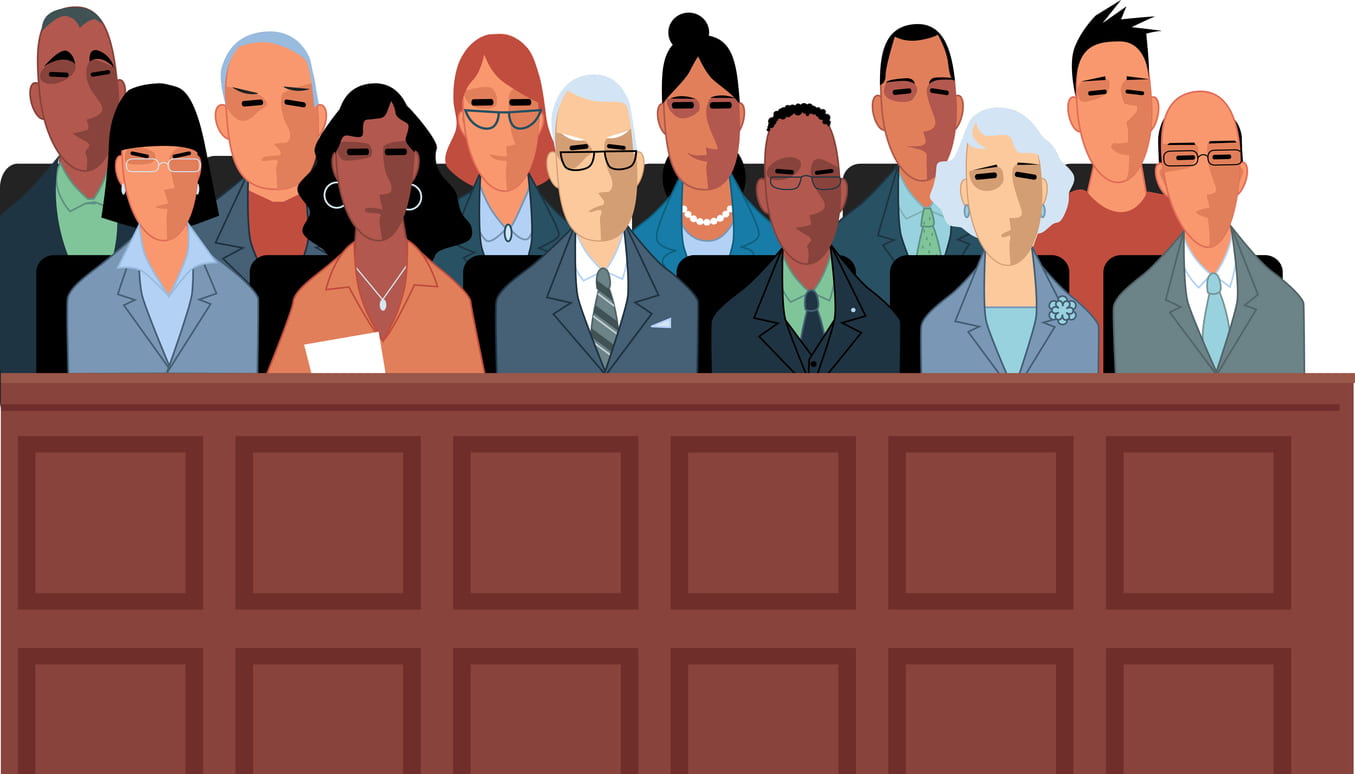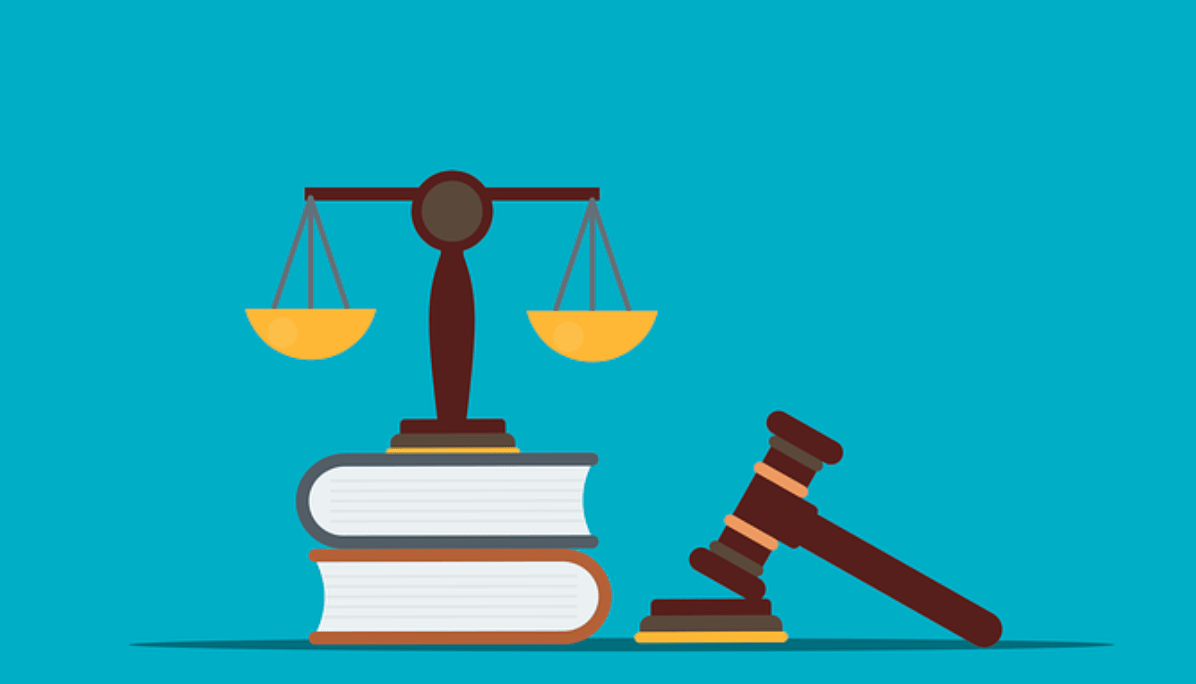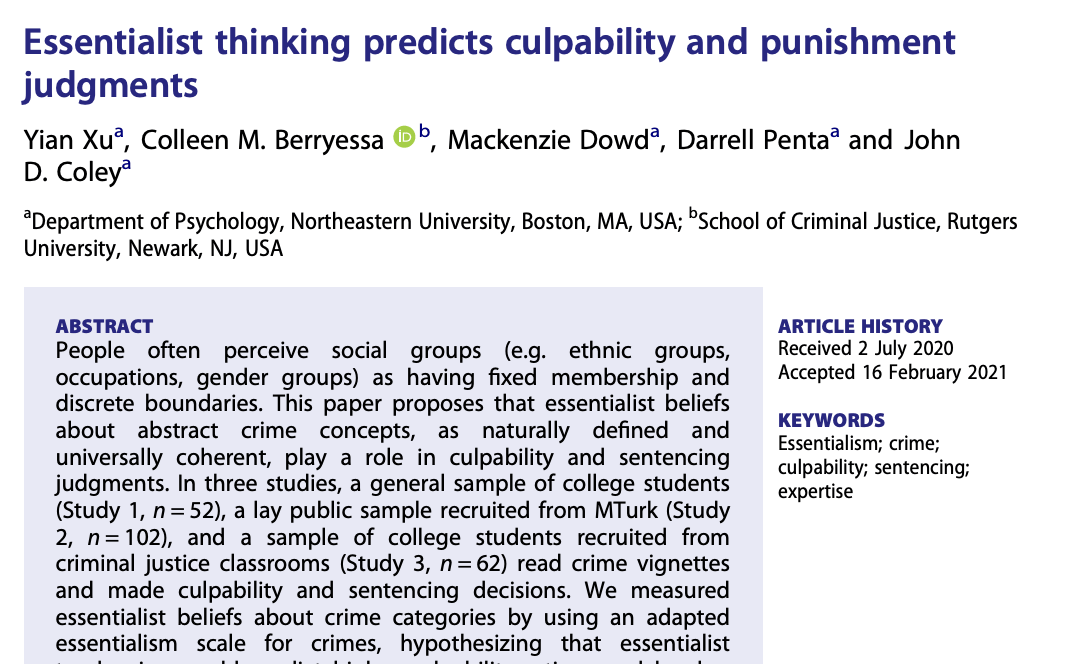Have you ever been on a jury and had to make decisions about a defendant’s guilt? Have you ever considered how your intuitive biases may have impacted your perceptions of crime? This question was the focus of former CORE lab doc student, Yian Xu, in her research paper “Essentialist thinking predicts culpability and punishment judgments.”
Often, those involved in legal decision making (jurors, judges, attorneys) may not have enough time or information to make a completely informed decision and thus end up relying on automatic cognitive processes. In her research, Yian focused on the cognitive bias of essentialism, which describes the extent that people assume members of a social group have an underlying “essence,” shared features, and fixed membership. Specifically, the research examined participants’ essentialist beliefs about crime concepts, or how much they believe certain crimes to be forbidden by natural law (rather than just regulated by society).
Often, those involved in legal decision making may not have enough time or information to make a completely informed decision and end up relying on automatic cognitive processes.
Yian and her team, including Mackenzie Dowd, Darrell Penta, and CORE Lab collaborator Dr. Colleen Berryessa (Criminal Justice, Rutgers University), completed three studies to examine effects across different sample groups: college students, the general population, and college students studying criminal justice. The participants were given short example situations of different crimes (murder, theft, arson, rape, robbery, burglary, embezzlement and drug violation), and then rated the perceived culpability of the protaganist and suggested a length of sentencing for punishment. The measurement of their essentialist beliefs towards the different crime categories was separated into two aspects: naturalness – the extent that a category is viewed as objective, sharply bounded, and invariant and cohesiveness – the extent that a category is viewed as homogeneous.
Results showed an overall use of essentialism towards the crime concepts, although criminal justice students’ use of essentialism was not significant. Crimes that revolved around direct personal harm (rape, robbery) were more strongly essentialized than the other categories. Interestingly, essentialist thinking also had a significant effect on lay participants’ culpability and punishment judgements.
Interestingly, essentialist thinking also had a significant effect on lay participants’ culpability and punishment judgements.
Specifically, if participants had stronger naturalness beliefs about a crime category (category is objective, sharply-bounded), they tended to have higher culpability judgements. Yian hypothesizes that this may be because viewing a crime as a violation of the natural law may lead to stronger beliefs that the behavior is inherently wrong. The research also found that if participants had stronger cohesiveness beliefs (category is homogenous), this predicted harsher sentencing decisions. The team hypothesized that viewing a crime category as uniform may increase perceptions that the crime will be committed again, justifying greater punishment decisions. Further research is necessary to investigate these potential causal factors.
However, for criminal justice students, essentialist thinking did not predict culpability and sentencing decisions. Compared to the other groups, the criminal justice students did not use essentialist thinking towards the crime categories significantly. This finding suggests that formal education about criminal justice is important in reducing cognitive biases, such as essentialism, when considering legal decision making.


This research has important implications for the legal system, especially with regards to trials by jury. The general population’s culpability and punishment judgements are significantly affected by essentialist thinking, which may result in biased decision making on juries. As essentialism was weaker in those with formal education in the criminal justice field, it may be important to implement education strategies for those involved in legal decision making to reduce biases and ensure fairer sentencing. Yian is currently working with collaborators to see how priming participants with crimes framed in essentialist or non-essentialist ways may have an impact on their essentialist thinking. She is also investigating how stigma towards crime as well as attitudes towards sentencing policies may interact with this relationship. Yian’s goal is to better understand how people’s intuitive beliefs about crime concepts can be shifted, both by short-term priming situations and long-term interventions towards non-essentialist ways of thinking.
As essentialism was weaker in those with formal education in the criminal justice field, it may be important to implement education strategies for those involved in legal decision making to reduce biases and ensure fairer sentencing.
